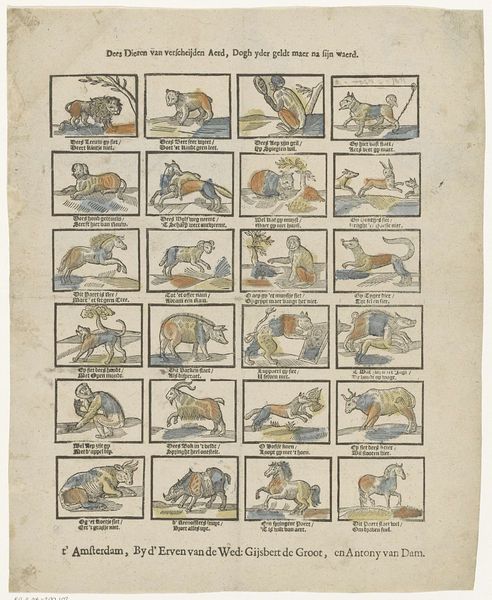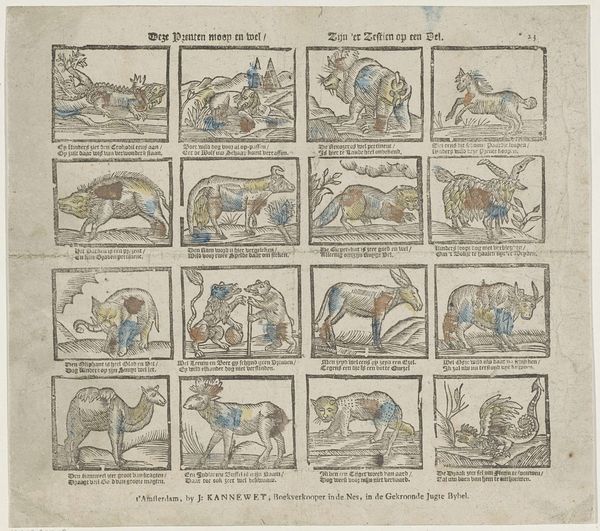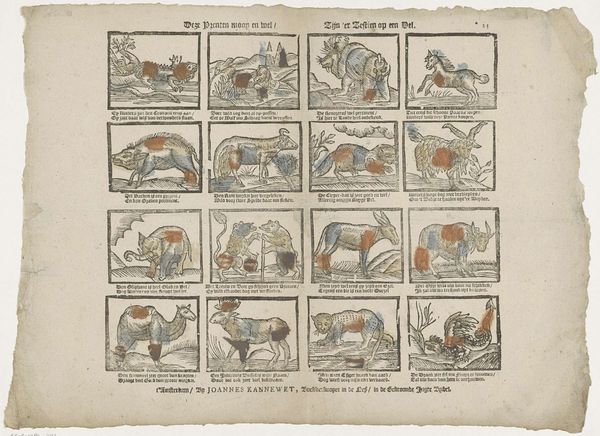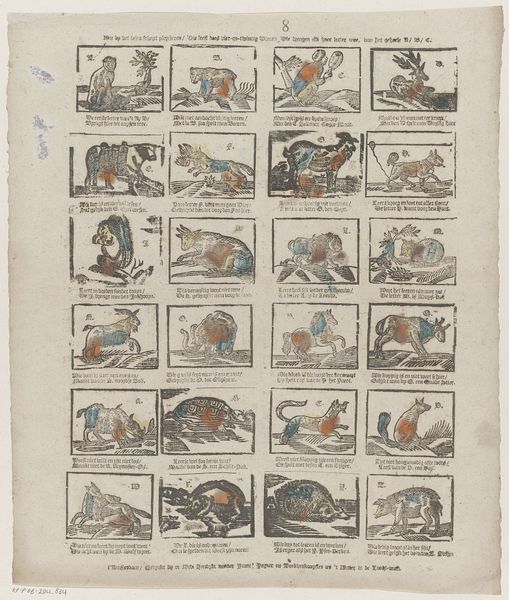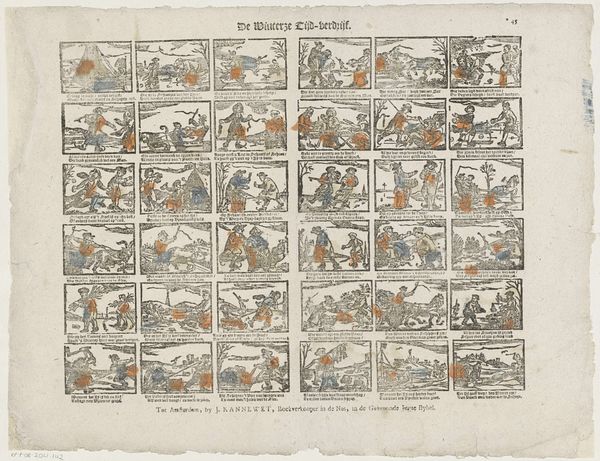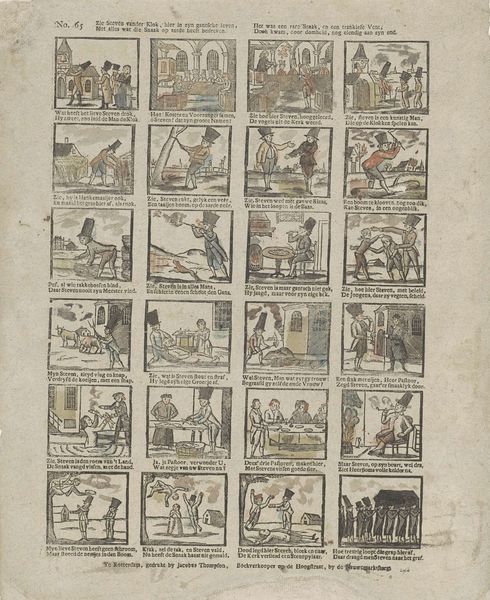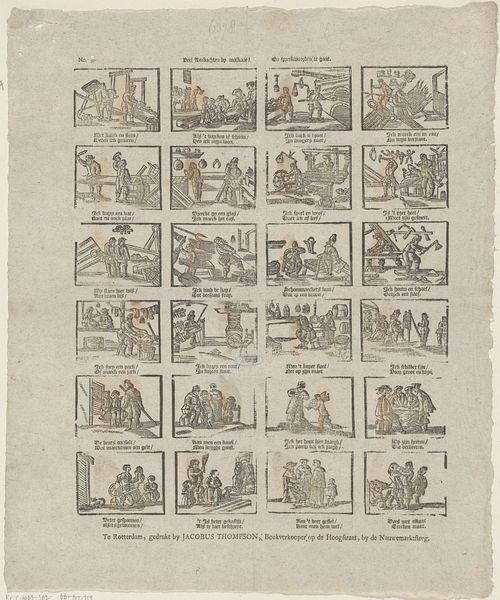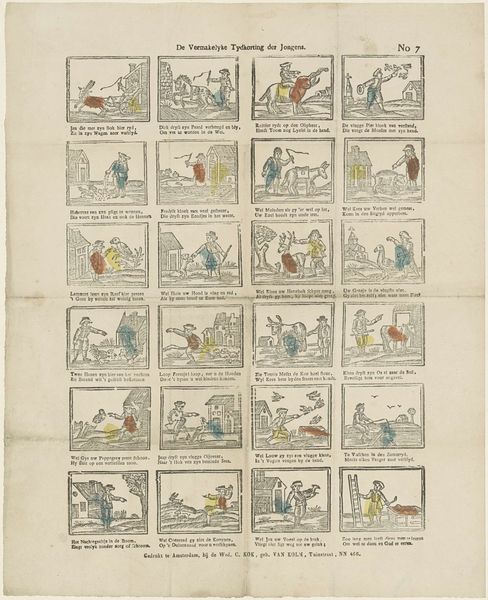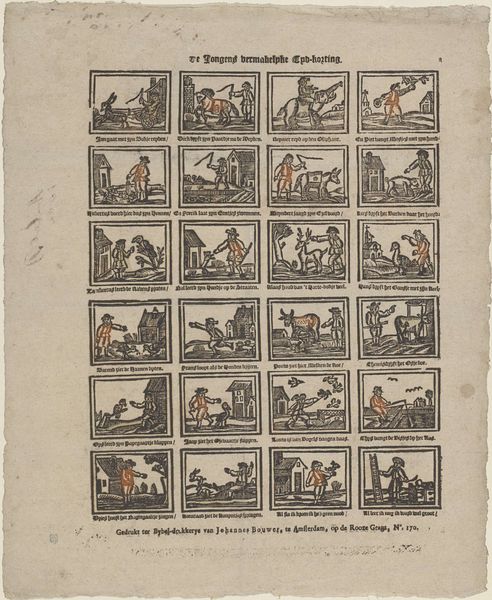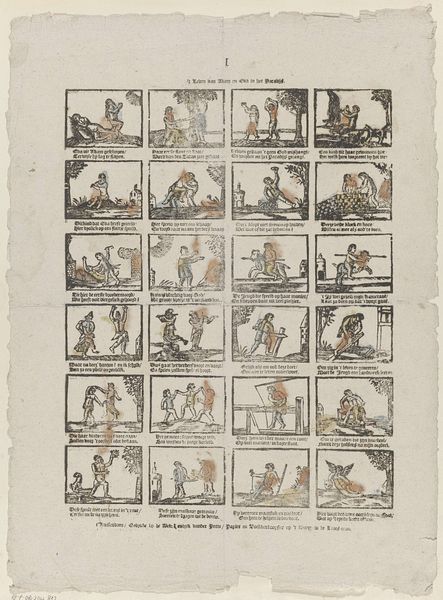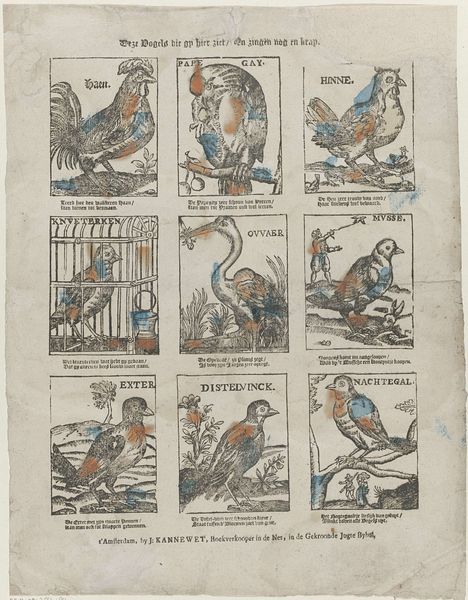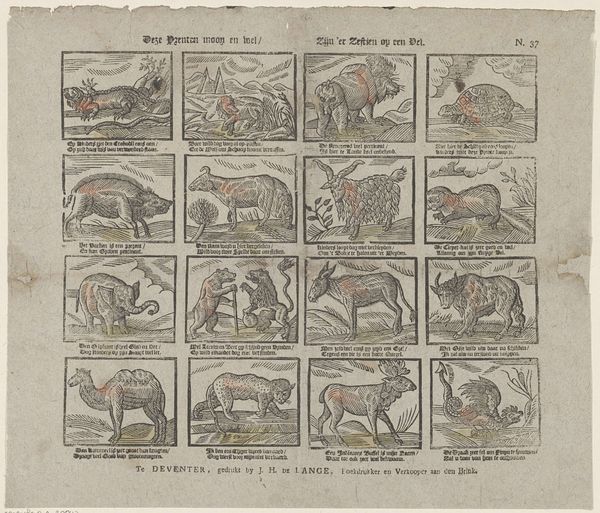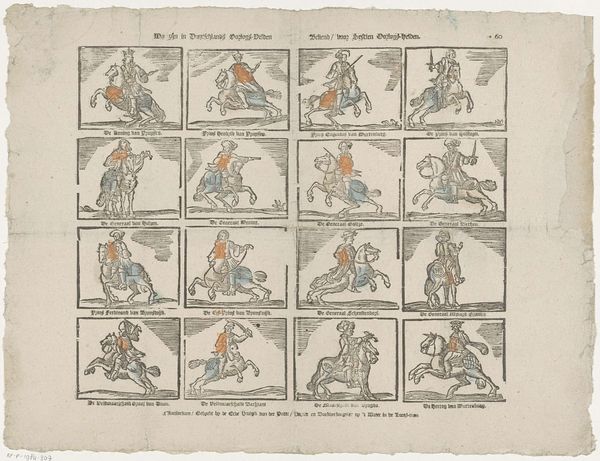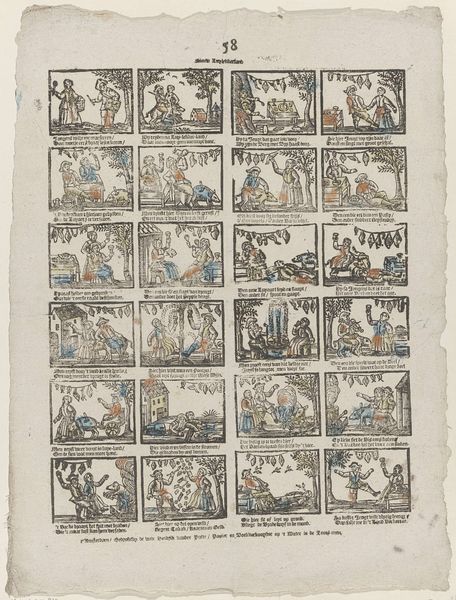
Hier ziet gij verscheyde wreede / wilde en tamme gediertens 1765 - 1767
0:00
0:00
weduwehendrikvanderputte
Rijksmuseum
print, engraving
#
animal
# print
#
dog
#
landscape
#
figuration
#
horse
#
genre-painting
#
engraving
Dimensions: height 405 mm, width 315 mm
Copyright: Rijks Museum: Open Domain
This hand-colored woodcut, titled "Here you see various cruel / wild and tame animals," was made by the widow Hendrik van der Putte. The image presents a grid of animals, each captioned with a short verse. It was produced in the Netherlands, likely during the 17th or 18th century, a time when printed images were becoming increasingly accessible to a wider public. The woodcut reflects a growing interest in the natural world, fueled by exploration and scientific inquiry. But this isn't a purely objective representation. The inclusion of verses suggests a moralizing intent, perhaps using animal behavior to comment on human society. The distinction between "cruel, wild, and tame" animals speaks to contemporary concerns about order, control, and the relationship between humans and nature. To fully understand this print, we might consult early natural histories, emblem books, and popular literature of the period. These sources can illuminate the cultural meanings attached to these animals and the social values that the artist, and the widow Hendrik van der Putte, may have been trying to convey.
Comments
No comments
Be the first to comment and join the conversation on the ultimate creative platform.
